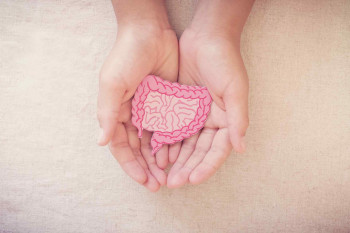8 Fun Ways to Focus on Your Brain Health
In today's fast-paced world, taking care of our brain health is more important than ever. Our brain is the control center of our body, responsible for processing information, making decisions, and regulating our emotions. Just like any other part of our body, the brain requires attention and care to function at its best.
In this article, we will explore eight fun ways to focus on your brain health. These methods are not only beneficial for your cognitive abilities but also enjoyable to incorporate into your daily routine. So let's dive in and discover how to optimize our brain health!
1. Engage in Regular Exercise
Exercise is not just beneficial for our physical well-being; it also has a positive impact on our brain health. Engaging in regular physical activity increases blood flow to the brain, delivering essential oxygen and nutrients. This can enhance cognitive function, memory, and overall mental sharpness. Incorporate activities like brisk walking, jogging, dancing, or even playing a sport into your routine to reap the brain-boosting benefits.
2. Challenge Your Mind with Brain Games
Keep your brain active and stimulated by engaging in brain games and puzzles. These activities, such as crosswords, sudoku, or chess, challenge your cognitive abilities, improve memory, and enhance problem-solving skills. Additionally, online brain training platforms offer a wide variety of games specifically designed to target different cognitive functions. Dedicate a few minutes each day to exercise your brain and sharpen your mental acuity.
3. Maintain a Healthy Diet
What we eat has a significant impact on our brain health. Consuming a balanced diet rich in fruits, vegetables, whole grains, lean proteins, and healthy fats provides essential nutrients that support brain function. Omega-3 fatty acids, found in fish like salmon and walnuts, are particularly beneficial for brain health. Additionally, foods high in antioxidants, such as berries and dark chocolate, can help protect the brain from oxidative stress. Remember, a healthy brain starts with a healthy diet!
4. Get Sufficient Sleep
A good night's sleep is crucial for optimal brain function. During sleep, the brain consolidates memories, repairs cells, and flushes out toxins. Lack of sleep can impair cognitive abilities, attention span, and memory. Aim for 7-9 hours of quality sleep each night to recharge your brain and improve overall brain health. Establish a bedtime routine, create a comfortable sleep environment, and avoid electronic devices before bed to ensure a restful night's sleep.
5. Practice Stress Management Techniques
Chronic stress can have detrimental effects on brain health. It can lead to memory problems, difficulty concentrating, and even increase the risk of developing certain neurological conditions. Incorporating stress management techniques into your daily routine can help protect your brain. Practices such as meditation, deep breathing exercises, yoga, or engaging in hobbies you enjoy can effectively reduce stress levels and promote a healthy brain.
6. Socialize and Stay Connected
Human connection is vital for our overall well-being, including our brain health. Engaging in social activities and maintaining strong relationships can help improve cognitive function and reduce the risk of cognitive decline. Join clubs, volunteer in your community, or simply spend time with loved ones to keep your brain active and stimulated. Remember, a vibrant social life contributes to a healthy brain!
7. Learn Something New
Continuously challenging your brain by learning new skills or acquiring knowledge is an excellent way to maintain and improve brain health. Whether it's playing a musical instrument, learning a new language, taking up a new hobby, or delving into a subject of interest, the act of learning stimulates the brain and promotes neuroplasticity. It helps create new neural connections and strengthens existing ones. Dedicate time each week to learn something new and expand your horizons. Not only will it benefit your brain health, but it will also bring a sense of fulfillment and accomplishment.
8. Prioritize Mental Well-being
Mental well-being is crucial for maintaining a healthy brain. Take steps to manage your mental health and prioritize self-care. Engage in activities that bring you joy and relaxation, such as listening to music, practicing mindfulness, or indulging in a favorite hobby. Seek support from friends, family, or a professional if you are experiencing mental health challenges. Remember, a healthy mind is the foundation for a healthy brain.
FAQs (Frequently Asked Questions)
Q: How can I incorporate these brain-boosting activities into my busy schedule?
A: It's understandable to have a busy schedule, but even small changes can make a big difference. You can start by dedicating short periods of time each day to brain exercises or engaging in activities during your breaks. For example, you can solve a crossword puzzle during your lunch break or listen to a podcast while commuting. Finding moments throughout the day to prioritize your brain health will add up over time.
Q: Are there any specific foods that are particularly beneficial for brain health?
A: Yes, certain foods are known to be beneficial for brain health. These include fatty fish like salmon and sardines, which are rich in omega-3 fatty acids. Blueberries, turmeric, broccoli, pumpkin seeds, dark chocolate, and green tea are also known for their brain-boosting properties. Incorporate these foods into your diet along with a variety of fruits, vegetables, whole grains, and lean proteins for overall brain health.
Q: How long does it take to see improvements in brain health with these activities?
A: The timeline for seeing improvements in brain health varies from person to person. Some benefits, such as improved mood and focus, can be experienced quite quickly, even after a single session of brain exercises or a healthy meal. Long-term benefits, such as enhanced memory or cognitive function, may take several weeks or months of consistent practice. Remember to be patient and persistent in your efforts to focus on your brain health.
Q: Can socializing really make a difference in brain health?
A: Absolutely! Socializing and staying connected with others has been linked to improved brain health. Engaging in social activities stimulates the brain, enhances cognitive function, and reduces the risk of cognitive decline. Meaningful interactions with friends, family, and the community provide mental stimulation, emotional support, and a sense of belonging. So, make an effort to nurture your social connections for the well-being of your brain.
Q: Is it necessary to engage in all eight ways mentioned in the article?
A: It's not necessary to engage in all eight ways mentioned in the article, but incorporating a combination of these activities can provide comprehensive brain health benefits. Choose the activities that resonate with you and fit into your lifestyle. Experiment with different approaches and find what works best for you. The key is to be consistent and make brain health a priority in your daily life.
Q: What are the long-term effects of neglecting brain health?
A: Neglecting brain health can have various long-term effects. It can increase the risk of cognitive decline, memory problems, and neurological conditions such as Alzheimer's disease or dementia. Poor brain health can also impact overall quality of life, including mood disorders, difficulty concentrating, and decreased productivity. Taking proactive steps to focus on your brain health can help mitigate these risks and promote a vibrant and healthy brain function well into the future.
Conclusion
Incorporating fun ways to focus on your brain health is essential for maintaining cognitive function, memory, and overall well-being. By engaging in regular exercise, challenging your mind with brain games, maintaining a healthy diet, getting sufficient sleep, practicing stress management techniques, socializing, learning new things, and prioritizing mental well-being, you can optimize your brain health and enjoy a sharper, more vibrant mind.
Remember, taking care of your brain is a lifelong journey. Start implementing these strategies today and make them a part of your daily routine. Small changes can lead to significant improvements over time. Prioritize your brain health and reap the rewards of enhanced cognitive abilities, improved memory, and a higher quality of life.

























